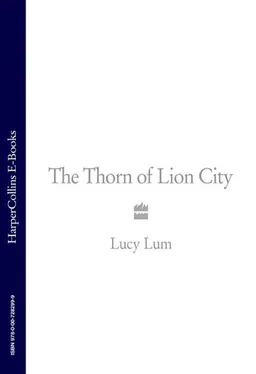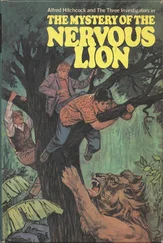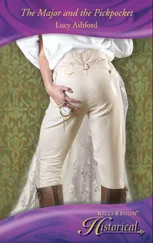Popo said that she had given birth to my mother, Chiew-wah, in the year of the tiger and, two years later, in the year of the dragon, to her second daughter, Chiew-foong. When Kung-kung was not in the shop, he often ventured to the docks to hear tales of faraway countries – America, Russia and Liverpool in England – from Chinese seamen with grey in their beards. He couldn’t tear himself away, and on his return to the flat he would grumble to Popo about his long hair, which was plaited into a queue. It had never troubled him until he started going to watch the ships, and now he wanted to look like the sailors: ‘They have no queue but short-cropped hair. I want to cut mine off,’ Kung-kung said. ‘When I bend down it sweeps the floor.’ Popo was not surprised when he came home one day with short hair, and it wasn’t long after this that he decided to leave Hong Kong and take his young family with him.
As soon as his younger brother was old enough to take over the shop and look after their parents, Kung-kung, Popo and their two daughters boarded a cargo boat bound for Singapore. The island offered many opportunities, he said. They would find good fortune and prosperity there.
My mother was ten and not a good traveller. While crossing the South China Sea, a heavy storm churned the waters and the boat tossed violently. She was seasick and could not keep down any food during the long journey. She stayed on deck with Kung-kung, but every time she felt a little better, the smell of dried fish and meat from the cargo hold below would make her sick again.
Popo would tell her friends how the family had found the flat in Chinatown, and how my grandfather had had to pay the landlord more than he could afford for the lease because so many immigrants were pouring into Singapore. He spent what was left on setting up his market stall selling herbs, the only trade he knew well, but to safeguard his business he had to pay the tongs , the gangsters of the district. They told him that only they could protect him from other stallholders and those who wished him ill, but mainly they guaranteed him freedom from the threats and intimidation of other tongs . Kung-kung worked hard and looked to the future: he wanted to expand into a proper medicine shop some day, like the one his family owned. He expected Popo to help him sell the herbs, as she had in Hong Kong, but he soon found that only one pair of hands did the work – his own. Popo told her friends that she would not work on the stall, and she expressed no shame for her failure to behave as a loyal and dutiful wife should; neither did she care that she had not borne Kung-kung sons who would carry on the family name.
My grandfather Kung-kung was a quiet man and paid me little attention, but he let me sit in the corner of his bedroom to watch him smoke his opium, which he did every night after dinner. Kung-kung’s bed was his special place, made especially for smoking; there were elaborate carvings on the headboard and on a rosewood panel at the foot. Instead of a mattress, a closely woven rattan mat fitted over the frame. Every night after dinner he would spread over it a piece of heavily stained canvas to catch the tiniest drop of spilt resin. On top he would place a teacup-sized oil lamp and his polished black pipe, which was two feet long with a wooden bowl at one end. When everything was ready he would unwrap the packet of precious opium pellets and place one in his pipe. Then, stretched out comfortably on his side, he would rest his head on a porcelain-block pillow, and begin to smoke.
As I sat watching him from the floor, I would enjoy the aroma of the opium, a delicious roasting smell. Later, when he had finished, he would unscrew the bowl from the pipe, scrape the residue into a container, then painstakingly retrieve every speck of opium that had fallen on to the canvas.
One evening Kung-kung returned home after another hard day’s work on his stall. After he had eaten, he hurried to his bedroom and I followed. Sitting quietly on the floor, I watched him make his usual preparations and start to enjoy his pipe. Before he had finished, Popo marched into the bedroom with fire in her eyes. ‘Go and smoke in the opium den down the road,’ she said. ‘I cannot stand it any more.’
Kung-kung looked at her in amazement and I could see that he was angry. ‘I have smoked it all these years and now you cannot stand it?’ he said, through clenched teeth that the opium had stained brown.
‘I am thinking of the grandchildren,’ said Popo, looking at me.
‘So it’s all right for them when the tenants smoke – or will you tell them to go to the opium dens too? Why don’t you tell the truth? I’m not stupid. You’ve made life miserable for Poh-mun, forcing him to hand over his wages, and now you want to do the same with me. I will go to the opium den, but you will regret it.’
Kung-kung never thought of himself as an addict, even though he had smoked opium since he was a young man. ‘It is for medicinal purposes,’ he always said, reminding everyone that, as a herbalist, he knew what he was talking about. He smoked at home because opium dens were expensive. I heard him complain to Father that the beautiful women who worked there encouraged him to gamble and that this made him smoke more. The dens were dangerous too, he said, and under the protection of the tongs who took a percentage of their takings and beat up any addicts who did not pay. Popo knew that the dens were guarded by the tongs , who sometimes fought territorial wars; she even knew some of the gang members and could interpret their secret hand signals but, as she told her chimui when they discussed what she had done, she was glad to have Kung-kung and his opium out of the house.
After Kung-kung had been forced to abandon his carved bed for the opium den, word spread that he was under the thumb of his wife. He nurtured a silent anger, and spent less and less time at home. Instead he wandered the streets and sat in coffee shops. Some weeks passed and then one day, just after we had finished our dinner, he came out of his bedroom with a suitcase in his hand. ‘Take this,’ he said to Popo, and handed her a wad of banknotes.
‘Where are you going? Where did you get this money?’ Popo cried.
‘I’m going away and that is all you need to know. Don’t wait for me to come back.’
With that, they parted for ever.
After Kung-kung left, my mother went to Trengganu Street where he had had his herb stall to ask the other stallholders if they knew where he had gone, but nobody would say anything. She thought Kung-kung must have asked them not to tell his family. Weeks passed but she didn’t give up hope. She returned to the street every day, at different times, trying to find someone who would tell her where Kung-kung was. As she walked up and down, she would think of her journey with her father on the cargo boat, and how the churning sea and the smell of dried fish had made her seasick, and how Kung-kung had taken care of her. She grew more and more distracted and Father became so worried about her that he went to a seamen’s club to see what he could discover about Kung-kung’s disappearance. When he returned he told us that Kung-kung had met an old friend called Chow, whose ship was in dock for repairs. Chow had told Kung-kung that he had made his home in San Francisco and had offered to get him a job working with him in the ship’s laundry.
Popo behaved as if she had done nothing wrong in causing Kung-kung to leave Singapore and his family. With my father’s monthly wages and the rent from her lodgers, she had plenty of money, so she spent even more time playing mah-jongg with her friends from the temple and with other immigrants who had come to Singapore across the tumultuous South China Sea.
Читать дальше












